
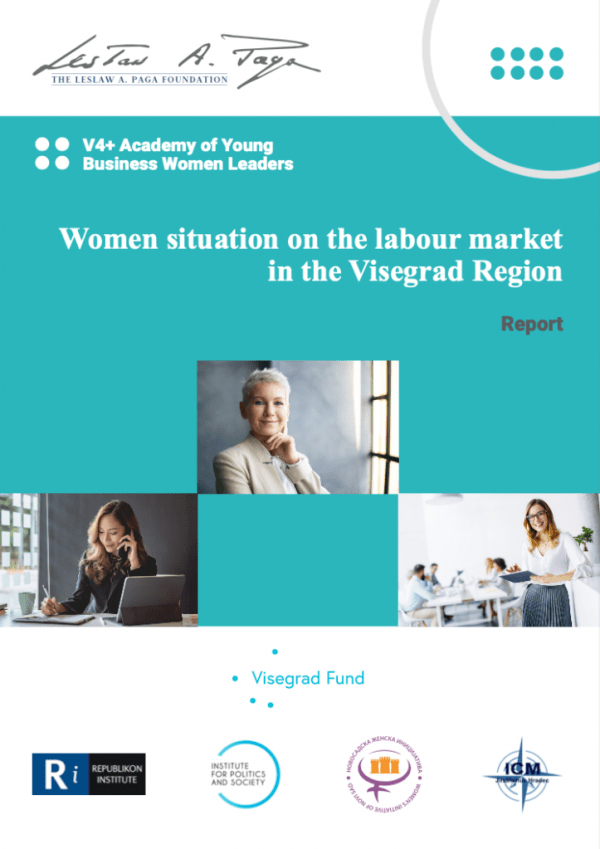
WOMEN’S SITUATION ON THE LABOUR MARKET IN THE VISEGRAD REGION (2021)
The preparation of this report is the result of a project by a women’s group on the situation of women in the labor market in the Visegrad Region. Years have passed since we noticed a series of significant changes in the social and legal environment, indicating recognition of the issue of women’s role in the market.
The report addresses the most important issues related to the challenges women have been facing for years, which should direct all employers’ attention to implementing regulations and policies promoting gender equality, investing in women in their organizations, being fair and inclusive to all people, regardless of their gender.
The report was prepared with the support of the International Visegrad Fund.
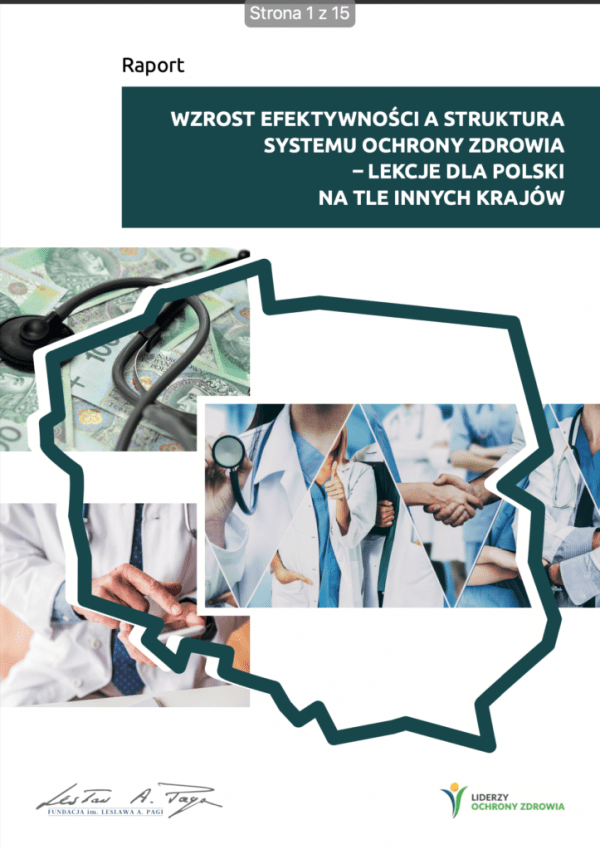
INCREASED EFFICIENCY AND THE STRUCTURE OF THE HEALTHCARE SYSTEM (2020)
Caring for the health of the population and ensuring citizens’ access to healthcare experiences are among the fundamental functions of the state. In Poland, the relevant provisions defining the right of all citizens to equal access to healthcare services and the duties of public authorities in combating diseases are included in the Constitution. The aim of this study was to compare selected characteristics of healthcare systems in Poland and various European countries, both in terms of organization and financing, and the health outcomes achieved.
The report was created with the support of the American Chamber of Commerce in Poland.
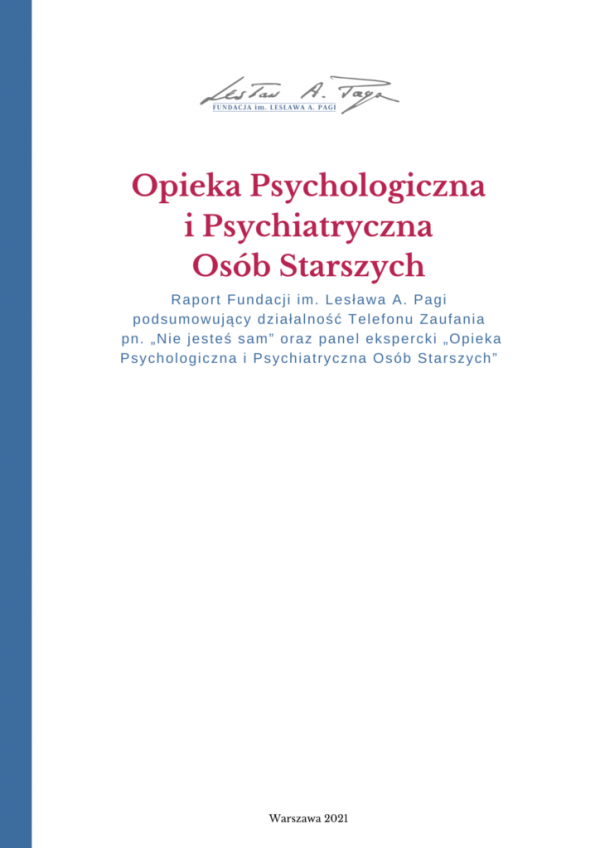
PSYCHOLOGICAL AND PSYCHIATRIC CARE FOR THE ELDERLY (2020)
The report by the Lesław A. Paga Foundation summarizes the activities of the “You Are Not Alone” Helpline and the expert panel “Psychological and Psychiatric Care for the Elderly.” It was based on the analysis of anonymous data collected by operators of the “You Are Not Alone” Helpline for Seniors.
The author of the report is Magdalena Maciejewska, an Alumna of the Lesław A. Paga Foundation.
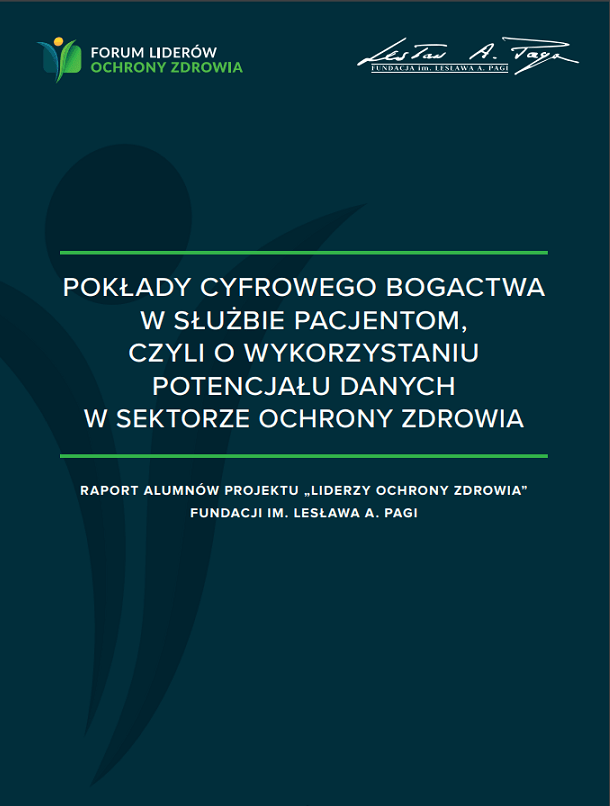
DEPOSITS OF DIGITAL WEALTH IN THE SERVICE OF PATIENTS (2019)
The report was prepared by the Alumni of the “Healthcare Leaders” project of the Lesław A. Paga Foundation. Its main theme is the utilization of data potential in the healthcare sector – an important and still not fully utilized resource. Its significance in the era of digital transformation, along with the development of modern technologies, is expected to steadily increase.
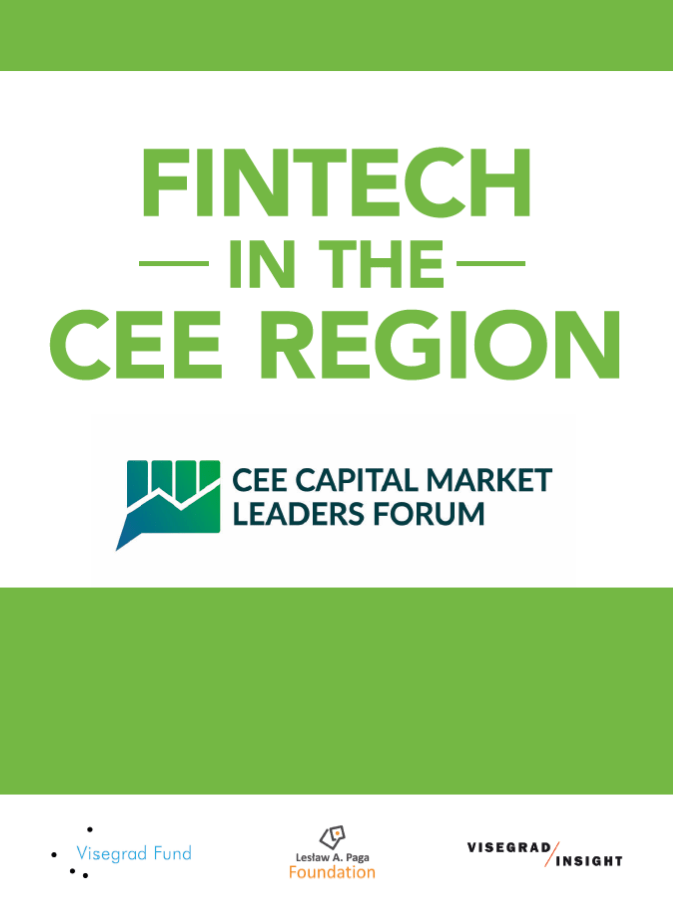
FINTECH IN THE CEE REGION
(2019)
The report addresses the technology themes such as artificial intelligence, blockchain, open banking, and API, analyzing their impact on the future of the financial sector. These trends are central to the current changes in the sector, dynamically shaping its competitive environment. The increasing number of startups in the FinTech industry is exerting more significant pressure on traditional financial institutions and requires them to revise their strategies. The information in the report also reflects the regional nature of the Forum, focusing attention on the countries of the Visegrad Group.
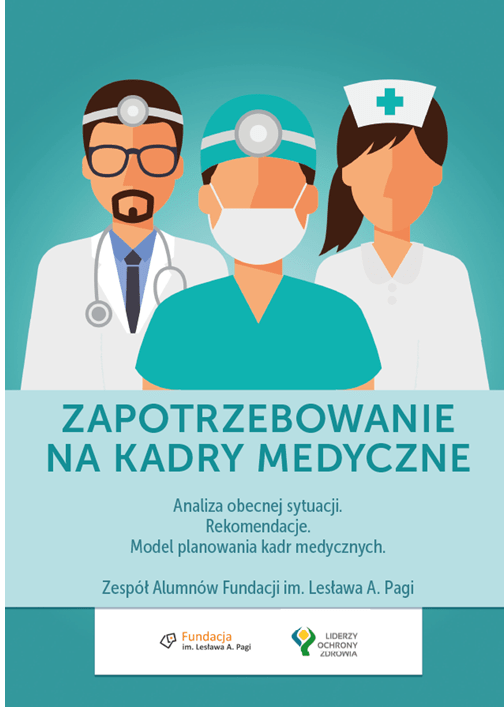
DEMAND FOR MEDICAL STAFF (2017)
This study was created as part of a partnership project between the Ministry of Health and the Lesław A. Paga Foundation, serving as an expert commentary on the report “Health Workforce Planning Methodologies across EU.” The document analyzes the staffing policy in the field of medical professions implemented by the Ministry of Health. Special attention was given to the medical and nursing staff, whose deficits are a Europe-wide problem. The document also contains recommendations, the implementation of which could significantly improve the staffing policy for medical professions.
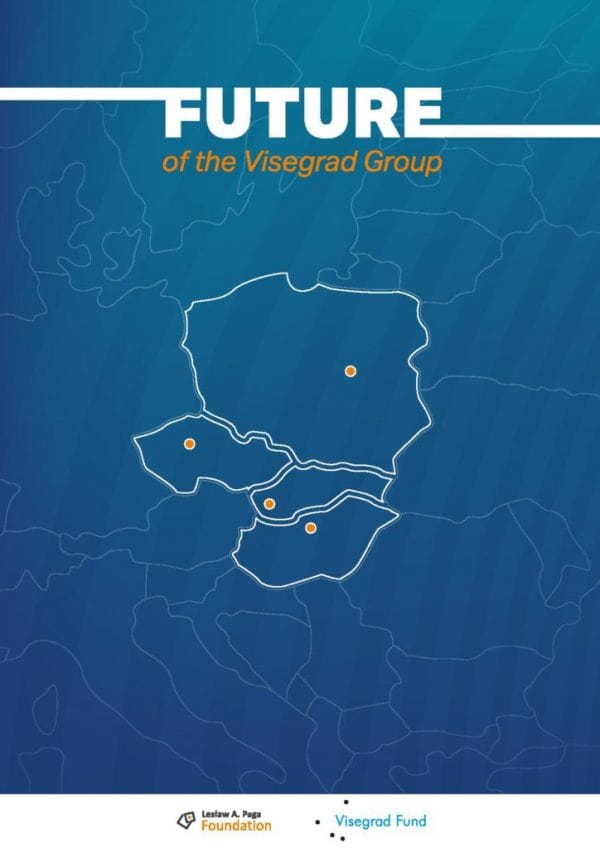
FUTURE OF THE VISEGRAD GROUP(2016)
The report presents a vision for the economic development of the V4 in the fields of entrepreneurship, finance, energy, and infrastructure from the perspective of the Foundation’s Alumni. A brief discussion on the adoption of the euro as a common currency in all Visegrad countries was also prepared. We hope that in the coming months and years, we can rely on our recommendations and actively participate in the ongoing transformation of our economies.

COOPERATION AS THE KEY TO EFFECTIVE HEALTHCARE (2012)
Collaboration between representatives of various medical professions has become the foundation of modern healthcare systems. This is significantly influenced by the development of medical sciences, pharmaceutical sciences, and health sciences. For several decades, there has been a shift away from the paternalistic model of healthcare, where the central focus is the needs of medical workers (doctors, nurses, etc.), towards a system where the patient’s well-being and needs are paramount. It seems necessary to implement transparent regulations into the Polish legal system, which would clearly indicate areas of cooperation while respecting the obvious autonomy of each profession.” – Damian Świeczkowski, MSc in Pharmacy, report coordinator.
Ignacy Morawski, jeszcze niedawno „tylko” główny ekonomista Pulsu Biznesu, dziś także zastępca redaktora naczelnego i dziennikarz z krwi i kości. Inspiruje, tłumaczy i współpracuje każdego zdania z dziennikarzami, nie wyobraża sobie dnia bez napisania swojego komentarza makroekonomicznego i pogłębionych tekstów dotyczących gospodarki.
Brunon Bartkiewicz jest związany z ING Bankiem Śląskim od początku lat 90-tych. Funkcję prezesa Zarządu pełnił kilkukrotnie, w 2016 roku ponownie został powołany na stanowisko prezesa ING Banku Śląskiego. Jak podkreśla: „Promowanie pozytywnych zmian zawsze zaczynamy od siebie. W naszej działalności podejmujemy inicjatywy mające na celu zmniejszanie naszego negatywnego wpływu na środowisko. Naszą rolę widzimy także we wspieraniu klientów w transformacji środowiskowej. Jednocześnie pomagamy im w byciu przedsiębiorczym i zarządzaniu finansami. Działamy na rzecz społeczeństwa i dbamy o zdrowie pracowników. Zgodnie z naszą misją chcemy pomagać klientom być o krok do przodu – w życiu i w biznesie, bo przyszłość to nasza wspólna odpowiedzialność.”
Założyciel i CEO CampusAI – innowacyjnego ekosystemu i platformy edukacyjnej, której celem jest etyczne, efektywne i odpowiedzialne uczenie korzystania z narzędzi sztucznej inteligencji w modelu współpracy człowieka i technologii Me+AI. Od 2006 roku Aureliusz Górski zajmuje się tworzeniem nowych przedsięwzięć — rozwijaniem innowacyjnych firm w ramach istniejących organizacji, łącząc w swojej pracy wizjonerskie myślenie, biegłość techniczną i zmysł biznesowy. Jego wiedza ekspercka obejmuje formułowanie strategii, myślenie projektowe, programowanie, pozyskiwanie funduszy i zarządzanie, co pozwala mu samodzielnie tworzyć prototypy i budować interdyscyplinarne zespoły. Dzięki tym umiejętnościom zdołał powołać do życia kilka udanych podmiotów gospodarczych, pozyskując ponad 70 milionów dolarów na ich rozwój i rekrutując ponad 250 wykwalifikowanych specjalistów. Jest współzałożycielem pierwszej w kraju sieci coworkingowej i inkubatora start-upów (AIP Business Link), centrum innowacji dla szybko rozwijających się firm (CIC Warsaw) oraz fundacji promującej inkluzywną innowacyjność (Venture Café Warsaw Foundation). Jego działalność społeczna obejmuje również członkostwo w Radzie m.st. Warszawy, udział w tworzeniu Strategii Zintegrowanych Inwestycji Terytorialnych oraz wkład ekspercki w strategię #Warszawa2030. W 2022 roku jego osiągnięcia zostały docenione przez magazyn „Manager”, który uhonorował go prestiżową nagrodą Manager Award.
Zofia Kierner to młoda przedsiębiorczyni społeczna, wykładowczyni gościnna na Harvard University oraz UC Berkeley, laureatka prestiżowych wyróżnień VOGUE Leader, Forbes 30 under 30 i 25 under 25 oraz stypendystka Rafał Brzoska Foundation. W wieku 15 lat założyła Fundację Girls Future Ready, organizację edukacyjną, która wspiera tysiące młodych kobiet i realizuje liczne międzynarodowe projekty. Jej działania wpłynęły na życie 80 tysięcy dziewcząt i wygenerowały ponad 25 milionów dolarów wartości społecznej. Następnie założyła 50one – butikową agencję impactową, która wspiera firmy i osoby indywidualne w tworzeniu i realizacji ich inicjatyw społecznych w modelu “Foundation as a Service”. Jej celem jest zamknięcie luki w zakresie wpływu społecznego. Posiada wykształcenie w dziedzinie Data Science i Business Economics z University of California, Berkeley.